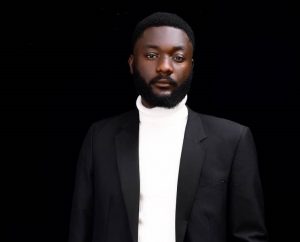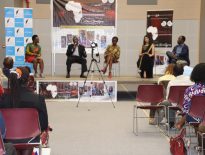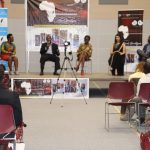The 2021 African Writers Conference was a 2-day event that ran from 8th to 9th of October in partnership with Alliance Française of Dar Es Salaam and the Department of Literature of the University of Dar es Salaam. Just like the previous conferences, this 4th edition was attended by writers from several countries in Africa. The conversations were thought-provoking and revealed the yearning of the participants for a future where African literature is truly African. Apart from that, here are 10 things you may have missed at the conference.
Read – The Future of African Literature – A Recap of the 2021 African Writers Conference
1. With Love from Dar es Salaam
The African Writers Conference (AWC) was held in the city of Dar es Salaam, in Tanzania. The experience felt like a manifestation of all the kindness, humility, and beauty in the people of Tanzania expressed in a poem written by Anthony Onugba. As creatives, we travel in our minds, and the idea of the AWC to unite, connect, and exchange ideas between Africans were achieved at the conference.
It wasn’t only about experiencing the conference, but it was also about experiencing the country and people of Tanzania. From the introductory remarks, we realise Tanzanians are proud of their culture and language. One of the things that stood out for me was a line in the introductory Swahili-written poem – “Mimi ni nwanamke, nwanamke ni mimi” which simply translates as, “I am a woman, a woman is me…” This poem is about redefining what Feminity is, from a woman’s perspective; which tells us, Tanzania is also a country that empowers women.
2. A Room of Colours
The conference was a representation of the diversity in Africa and its writers. It was filled with old and young people who have contributed to the growth of Tanzanian Literature and people who aspire to become writers. One of the names to note is the man who never ages, Richard Mabala, who has taken initiatives to empower African children’s rights. He began his keynote speech by saying, “If you want to tell the truth, write fiction/poetry, if you want to tell lies, write history.” He didn’t fall short in sharing his ideas on how different we are as writers and as Africans.
See the list of the 2021 African Writers Awards and Wakini Kuria Prize Winners
3. Africa is not one Homologous whole
There is a norm to have a definition of what African Literature is. But as quoted by the keynote speaker, Richard Mabala, “each generation must out of relative obscurity discover its mission, fulfil it or betray it.” This current generation is left with the question, African Literature, do we fulfil it or betray it?
Mr Mabala further enlightened the audience saying, ‘there is no African Literature but there are African Literatures.’ Africa is more than one story, and to accommodate all heterogeneity of African culture/society, we need to have different kinds of literature to express the different aspects of our lives. The riches of African Literature has not all been captured, and if we give diversity a chance, it is what will help us decide what the future of African Literature will be.
4. The Future is Female
Furthermore, the Keynote speaker raised a point on how nearly all African writers making a name outside Africa for themselves are female. Although the current holder of the Nobel prize for Literature is an African man, writers like Chimamanda Adichie, Nnedi Okarafo, Mariama Ba, etc. have led the way. With all certainty, as stated by Mr Mabala, the future is bright; we have plenty of fish but no pond.
Some issues have the potential to derail the future of African Literature if measures are not taken to curtail them. For example, it is not easy to publish a book and get known by using a local Publisher; it is also not easy for a Publisher to make money by publishing for a local market. There is an unwanted death to the Tanzanian (and African) Book Trade due to issues of piracy and poor marketing.
Read all you need to know about the African Writers Conference
5. The Panelists
The Conference had the honour of featuring three names from the writing and publishing industry. Princely H. Glorious, Dr Neema Laiza, and Hermes Damian Salla. Mr Princely is a short story writer at heart. One who believes stories give us identity or a deep understanding of ourselves
Neema Laiza can be considered the woman of marginalised people. She studies and identifies stereotypes and how stories are told by people, and tries to challenge said ideas and most importantly change the narrative of marginalised groups.
Hermes Damian Salla, who is a publisher, is a man of action with a focus on making relevant books available. His publishing company aims at publishing local books and also serves as a link between Tanzania and other Asian & U.S publishing companies.
6. The State of Short Story-telling in Africa
The panellists had their ideas on the current state of Stories in Africa. From their experience, it was ascertained that quite often, non-Africans tell the history of African stories. A gaze by foreigners on Africa makes them feel they have the right to produce stereotypical stories of Africa. In order to change this narrative, it is up to the new generation to use new mediums to write and express the identities of people or stories which have been left out.
Click to watch the Writers Mingle 4 – AWC Day 1
7. The Chicken and Egg Theory
A conversation that was raised at the conference is the Readership-Distribution problems. It is said, “we don’t read because we don’t have the books, and we don’t have the books because we don’t read.” No demand means, no publishing and/or distribution.
There is only one clear source of the reading-distribution problems; our System is our challenge and the only way to motivate reading is to help one another change the mentality of reading. We can reduce the inequalities in society that create a hindrance to reading and distribution if there is coordination between organisations.
Libraries should coordinate with local publishers to ensure books are always available. Universities need to store these local books. It is their responsibility, it is a source of information, and it is a form of motivation to the whole process of writing, publishing, and distribution of books.
Finally, we are as well the market – the reader of our books, and hence, we need to encourage ourselves and publicise our books and books written by other Africans.
8. Moving away from Tradition
Also, it was established at the conference that we limit ourselves when we think of publishing and distribution using the traditional methods. To develop stories, we need to be motivated to create our work. We need to lay mechanisms in place that will promote reading and writing. It is the responsibility of the writer to go where the audience is and inspire them to read our stuff. We ought to instil curiosity in people to get them to read, by making books they enjoy reading so they can become life-long learners.
Click to watch proceedings during the second day of the AWC
9. Excitement for the Future of African Literature
Unlike times of old, publishing is now a democracy, in the sense that, self-publishing is now possible via ebooks, podcasts, audiobooks, etc. This provides more room to include and celebrate more people and languages in African Literature.
One thing that was established at the conference about the Future of African Literature is that for African Literature to reach its pinnacle, it comes with a fight. A fight against cultural barriers, lack of appetite to read, lack of government aid, and restructuring the University learning and reading patterns. It was suggested that, for growth, one thing is a must – We have to come up with ways to go digital, and fast! This will indeed aid the reach of our books.
10. Maria’s rendition of LET IT GO
The ending of the Conference is associated with The African Writers Awards. This time around, it came with a beautiful twist. A Choreography by the flexible 9-year old, Maria. She danced to the song, LET IT GO by Idina Menzel. It might not be known right away but, this is a performance to express freedom of self. This is exactly where we hope to see the future of African Literature; to be free of stereotypes and to embrace diversity in writing styles and the way stories are told.
See you at the 2022 African Writers Conference to be held in Cameroon. Don’t miss it.
Read – Announcing the Host of the 2022 African Writers Conference (AWC)

Chris Baah is a Construction Site Engineer by profession, with a love for writing. He considers himself a free-spirited person willing to learn and unlearn. He writes with the aim of asking questions, and causing people to think about norms and stereotypes in society; and hopefully, lead to a positive change for future generations. He currently lives in Ghana, his home country, and has a dream of travelling and experiencing every good thing the world has to offer.







